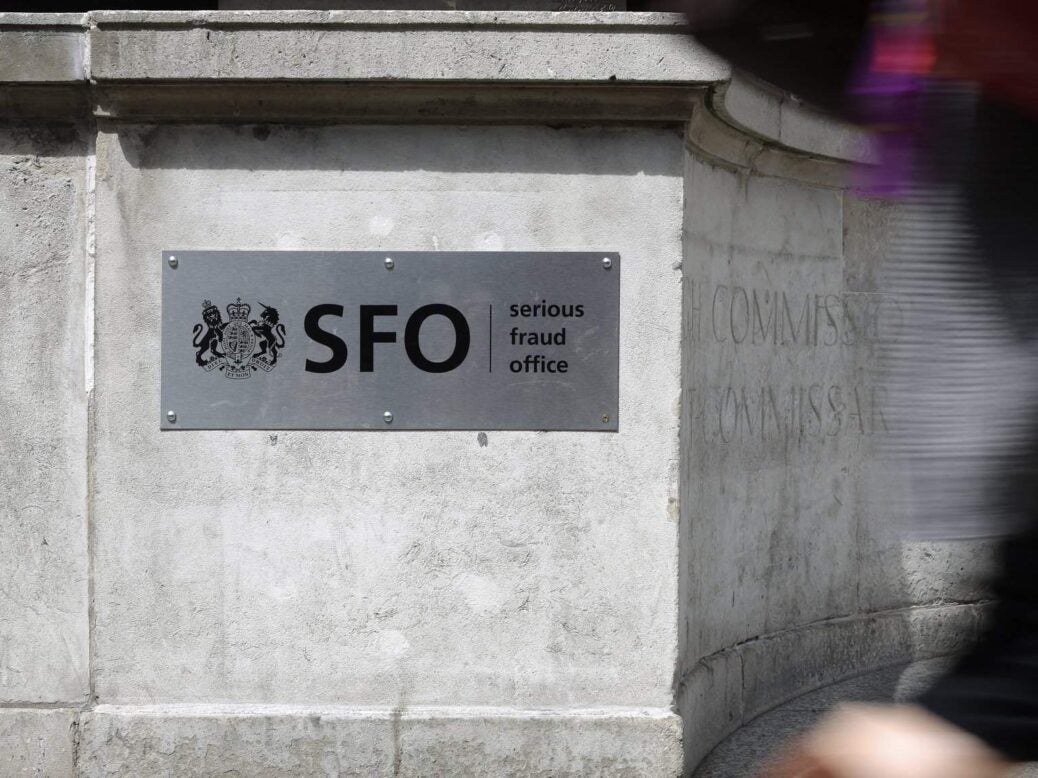
Could greater use of Deferred Prosecution Agreements improve the SFO’s performance? Amjid Jabbar investigates.
The Serious Fraud Office often makes the headlines, but not always for the right reasons. Since it was established nearly 30 years ago, there have been numerous high profile trials, a disappointing number of which have failed to result in a conviction. Some recent investigations have been mishandled, most notably that into property developer Vincent Tchenguiz, leading to a multi-million-pound compensation payment.
Things did improve following the appointment of David Green QC as SFO director in 2012, but the agency’s recent performance has deteriorated. While the conviction rate by defendant for 2013-14 was 85 per cent, which slipped to 78 per cent in 2014-15, the most recent figures are notably worse: In 2015-16, only 6 defendants in 4 cases were convicted, giving a dramatically low conviction rate of 32 per cent.
At the same time, the SFO’s expenditure has been rising, inexorably: from £40.9 million in 2012-13, the total spend reached £61.2 million in 2015-16.
Three clear facts emerge from data published in the SFO’s reports from 2012-16:
- Annual expenditure has risen by almost 50 per cent
- There have been only 49 convictions in the past four years.
- The average cost per conviction is approximately £4 million
The wider picture is also bleak. In May, the FT reported that the annual cost of fraud in the UK could be as high as £193 billion. Of this, £144 billion a year is in the private sector and the balance in the public sector. According to the Annual Fraud Indicator, published by the University of Portsmouth’s Centre for Counter Fraud Studies, which produced these figures, ‘it’s taking place on an industrial scale.’
By comparison, from 2012 to the end of July 2016, the SFO has recovered a meagre £48 million from confiscation orders. Given these statistics, the SFO is clearly only scratching the surface of the bigger serious fraud problem.
Faced with the challenge of low conviction rates and astronomical costs per conviction, why then is the SFO not entering into more Deferred Prosecution Agreements (DPAs)?
DPAs have their genesis in the US, where they have been commonplace since the collapse of Arthur Andersen in 2002, following a criminal conviction relating to the Enron scandal.
When DPAs were introduced under English law in 2013, they were seen as a mechanism to make companies more accountable for their actions, and as a way for them to put their wrongdoing behind them through a programme of cooperation with, and disclosure to, the relevant authorities.
There are however two important distinctions in how DPAs are used in the UK compared to the US: they must be approved by a judge, and they can only extend to corporations, not to individuals. These difference from the US model arose because of concern at the prospect of companies being able to buy their way out of a prosecution under an English DPA.
To date, the SFO has secured two approved DPAs:
- In November 2015 against Standard Bank over its alleged failure to prevent bribery. The bank paid $7m compensation in Tanzania, $25.2m to HMRC and costs of £330,000 to the SFO
- In July 2016 against a UK SME that cannot be named due to ongoing legal proceedings. The company will pay financial orders of £6,553,085
In terms of process, DPAs like these are reached between a prosecutor and an organisation which could be prosecuted, under the supervision of a judge. They allow a prosecution to be suspended for a defined period, provided the organisation meets certain specified conditions. Used for fraud, bribery and other economic crime, as indicated above, they apply to organisations, but never to individuals.
DPAs have several advantages:
- They enable a company to make full reparation for criminal behaviour without the collateral damage of a conviction (e.g. sanctions or reputational damage that could put a company out of business and thereby potentially destroy the livelihoods of innocent people)
- They are concluded under the supervision of a judge, who must be convinced that the DPA is ‘in the interests of justice’ and that the terms are ‘fair, reasonable and proportionate’
- They avoid lengthy and costly trials
DPAs do not provide a panacea: they will not be perfect in every case. Some practical concerns also arise over the position of witnesses who might incriminate themselves not then becoming targets for prosecution. There may be an argument for some form of leniency programme, akin to that initiated by the US Department of Justice’s Antitrust Division, whereby the first member of a cartel to report its conduct is granted immunity from prosecution.
Nevertheless, DPAs offer significant potential, particularly where resources are constrained, large SFO investigations are increasing, and conviction rates are declining. It is better that more companies facing criminal investigation by the SFO hold up their hands and comply with a DPA than a future where more expensive investigations are mothballed, fewer defendants reach the courtroom, and potentially, even fewer are convicted.
Amjid Jabbar is a partner at Stokoe Partnership Solicitors.








